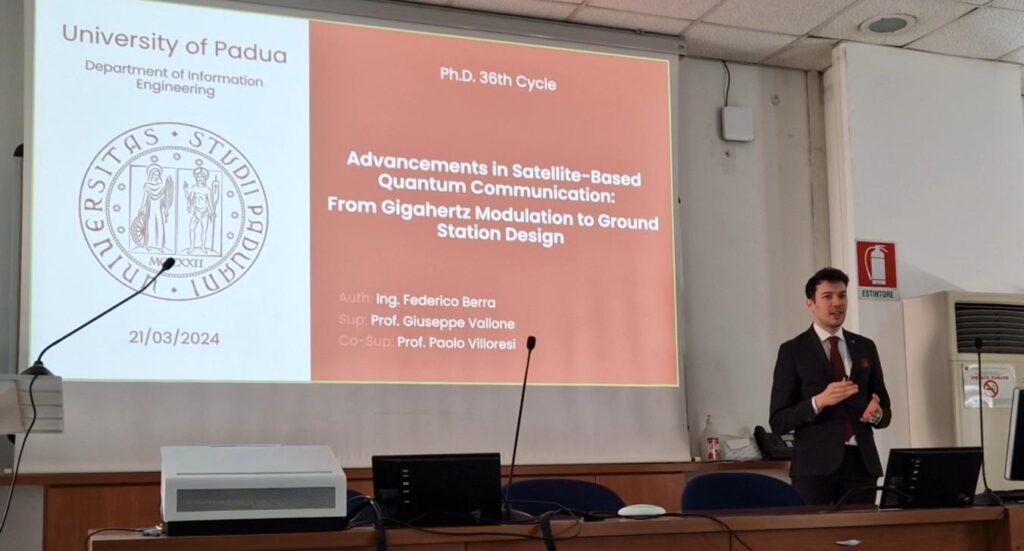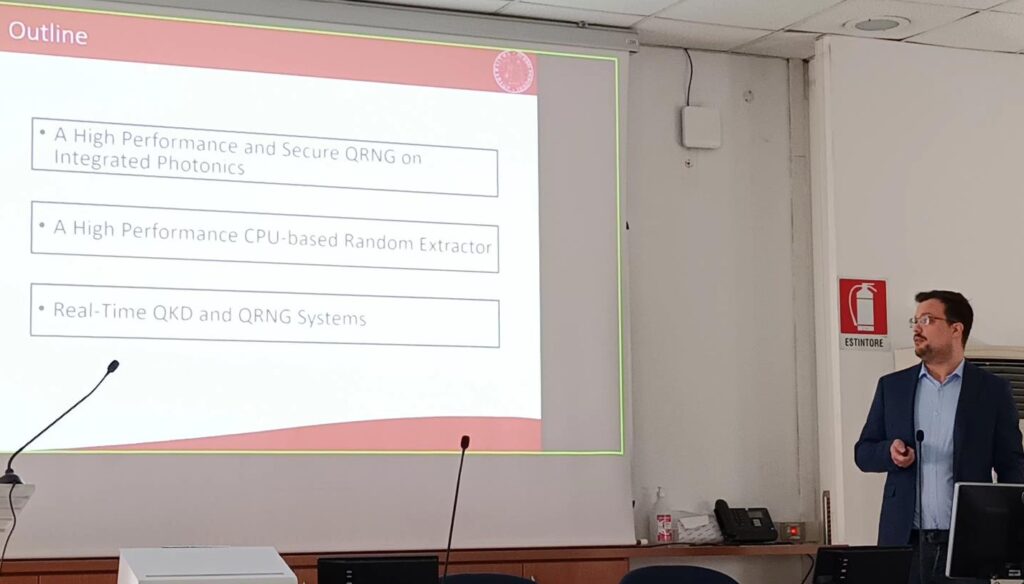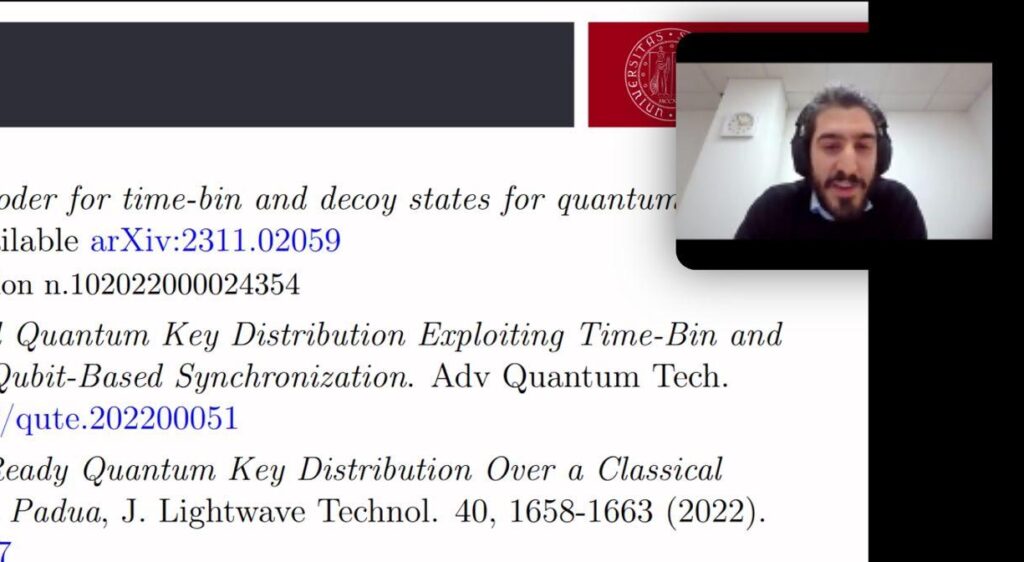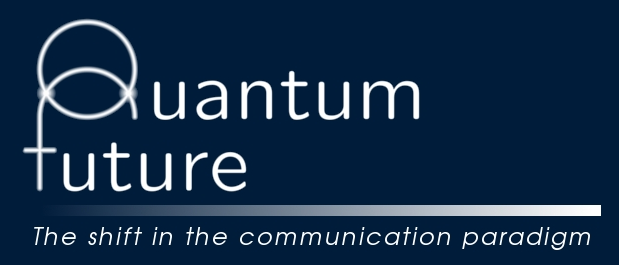On 21st of March 2024, three previous PhD students from the QuantumFuture group defended their theses in front of an evaluation committee. We would like to extend our congratulations to the new graduated PhDs: Dr. Federico Berra, Dr. Tommaso Bertapelle, and Dr. Davide Scalcon.

Dr. Federico Berra presented his thesis, titled “Advancements in satellite-based quantum communication: from gigahertz modulation to ground station design”, focusing on three key aspects. Firstly, he discussed the development of rapid polarization-encoded Quantum Key Distribution sources for the QUANGO project, operating at 795 and 1550 nm wavelengths, where he showed the required features to push the encoding frequencies to the gigahertz range. Secondly, he elaborated on the designing of optical ground stations tailored for satellite-based quantum communication protocols. Lastly, bridging the collaboration between QuantumFuture with the Padova student team AlbaSat, he collaborated on the development of a cheap payload for satellite communication that won the Fly Your Satellite Booster competition. He is currently doing a Master in Business Administration on the MIB Trieste School of Management.
Dr. Tommaso Bertapelle presented his thesis, titled “Integrated and real-time quantum randomness generation for secure applications”, where he presented the design and development of a source-device independent Quantum Random Number Generator based on a continuous variable encoding using integrated photonics. Moreover, he showed a high performance CPU-based randomness extractor to use for QRNG applications. Finally, he showed the development and integration of QRNG with a QKD system in a real-time implementation. He is currently continuing his research in the topic as a post-doc in the QuantumFuture group.


Dr. Davide Scalcon presented his thesis, titled “Advancing quantum key distribution on intermodal channels with fiber and free space links”. The main focus of the presentation was on the experimental activities on Quantum Key Distribution (QKD) carried out with the colleagues of the QuantumFuture group of the University of Padova. First, he introduced the work done on polarization encoded QKD, with the activities related to the use of prototypes in real-world conditions, including deployed fibers and network-oriented tests. He then described his work on time-bin encoded QKD, focusing on his contributions in the design of high-performance encoders, presenting the results of two experiments carried out in the laboratory. Lastly, he introduced the multi-aperture receiver, a novel architecture to improve fiber coupling of light after free space propagation, and his contributions to an ongoing project aiming to test the feasibility of ground to space quantum communications. He currently works as research scientist for Toshiba Europe, focusing on quantum communication technologies.
